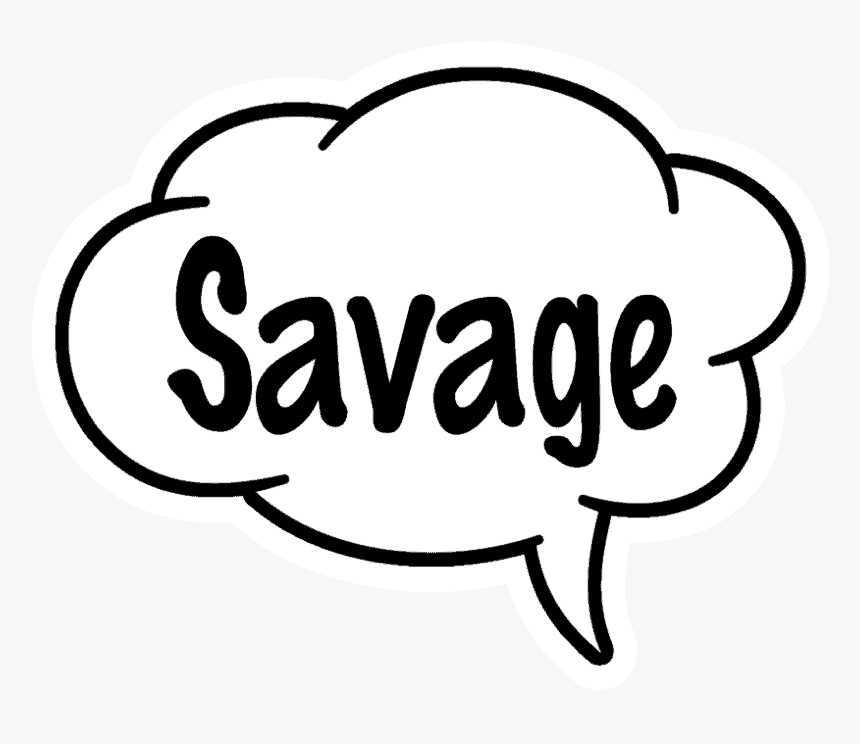Savage no more
I was speaking to students today in a virtual storytelling summer camp when I joked that someone who allows dog poop to remain on the floor for longer than necessary is a savage.
It’s a word I use quite often.
In a story I tell about living on my own for the first time, I say that when men live alone, they become savages.
When my family does not promptly empty hampers of freshly folded clothing, I refer to them as savages.
I’ve often said that anyone who leaves a dirty dish in the sink is a savage.
While I stand by each of those assessments, I have since learned that “savage” is not the best choice of words. After I signed off my Zoom meeting with my summer camp students, one of my counselors – a 19 year-old woman who has worked as my counselor for the last three years – asked if we could speak on the phone.
When we connected later that day, she explained to me that I may want to rethink the word “savage,” explaining that it’s a word that many Native Americans find offensive.
I had no idea. I was shocked.
Here’s the important part:
I didn’t immediately try to defend my use of the word. I didn’t assume that my counselor was wrong about her estimation of the word. I did not become angry with the prospect of losing the use of a word that I like a lot.
My first reaction was this:
Damn. A 19 year-old woman had the courage to tell me – an award winning teacher, bestselling author, and champion storyteller – that I am using a word that others may find offensive. Not only did she inform me about the nature of the word, but she also said that I should probably address my use of the word with our class at some point and maybe stop using it altogether.
I’m not sure if I could’ve done such a thing when I was her age.
Of course, my next thoughts were about the word itself. While I did not mean to offend, I could immediately see how the European’s categorization of Native Americans and Africans as “savages” allowed them to treat these human beings as less than human.
If you can dehumanize a group of people by referring to them as savages, you can enslave and kill them without concern.
Some quick research on the word proved these assumption to be true. While the meaning of the word has shifted over the years to other things, the origins of the word are steeped in racism. The Declaration of Independence refers to indigenous people as “merciless Indian savages.”
It began as a word used to dehumanize indigenous people and justify genocide.
And yes, it’s offensive to many people today.
It’s hard for some people to hear that a beloved word, a tradition, a holiday, statue, or name of your favorite sports franchise is somehow inappropriate, offensive, and perhaps racist. It’s hard to hear that your own words may have been perpetuating racism and hurting others for years. It’s hard to let go of things that you love.
It’s oftentimes hard to hear these critiques from someone who is less than half your age.
But too bad. Put on your big boy or big girl pants and deal with it.
For years, I have been using the word “savage” as a means of describing despicable behavior and simultaneously engendering a laugh, and it’s worked every time. It’s a word for which I am genuinely fond.
Elysha acknowledged that I use the word a lot. I like the word. It works well for me.
But no more.
I listened to my brilliant, brave, unwavering young friend, reflected upon her critique with an open mind and heart, researched further to learn more, and will henceforth change my behavior. This doesn’t mean that I’ll stop listening to the band Savage Garden (I stopped listening to them long ago) or stop referring to grizzly bears as “savage beasts,” but I will no longer be using the word to describe human beings.
I’ll also be heading to the thesaurus to find a more appropriate word.
If you have been wandering the wilderness for years, using this word, unaware of its potentially offensive nature, may I politely and kindly suggest that you do the same.
It’s hard to let go of things that we love, but it’s better than being a stubborn jackass in light of new learning.

